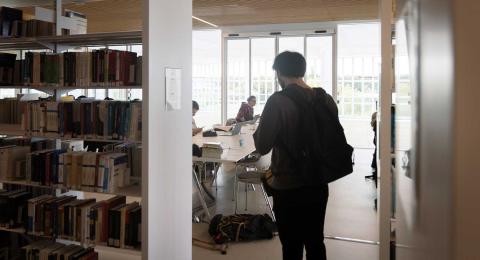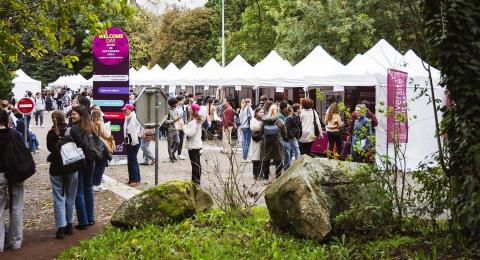Classical Curriculum: two periods of lectures and one internship (minimum 4 months)
Apprenticeship (two periods of internship, two periods of lectures. Foreign students required to have at least one year of studies in France to be eligible)
Informations
Objectives
1- Develop business strategies to meet the demands of consumers and citizens in the food sector.
2- Model the decisions of producers (agricultural and industrial), consumer behaviour and choices, and the different strategies of agri-food companies.
3- Implement recommendations to define appropriate agricultural and nutritional policies (incentives, taxes, subsidies, standards, information campaigns) with the objective of sustainability.
4- Design experimental studies and analyse from data the behaviours of the various actors in the food sector to determine the public policies to be implemented.
5- Compare new production and consumption models linked to the circular economy (innovation, eco-design, waste management).
6- Conduct research projects in economics in food, health and the environment.
Fees and scholarships
The amounts may vary depending on the programme and your personal circumstances.
Capacity
Available Places
Target Audience and Entry Requirements
Students who have validated the M1 of the Mention EEET or an M1 in economics with a quantitative dimension, finance, management or applied mathematics.
Also admitted are baccalaureate level + 4 students acquired in an Ecole Normale Supérieure, an Ecole d’Ingénieur, de Commerce, an Institut d’Etudes Politiques or any French or foreign training deemed equivalent by the jury.
Application Period(s)
From 15/03/2026 to 30/05/2026
Supporting documents
Compulsory supporting documents
Copy of identity document.
Motivation letter.
All transcripts of the years / semesters validated since the high school diploma at the date of application.
Curriculum Vitae.
Selection sheet completed.
Additional supporting documents
Certificate of French (compulsory for non-French speakers).
VAP file (obligatory for all persons requesting a valuation of the assets to enter the diploma).
Fiche de choix de parcours.
The application procedure, which depends on your nationality and your situation is explained here : https://urlz.fr/i3Lo.
Supporting documents :
- Residence permit stating the country of residence of the first country
- Or receipt of request stating the country of first asylum
- Or document from the UNHCR granting refugee status
- Or receipt of refugee status request delivered in France
- Or residence permit stating the refugee status delivered in France
- Or document stating subsidiary protection in France or abroad
- Or document stating temporary protection in France or abroad.
Location
Academic partner
University Paris-Saclay (AgroParisTech, CentraleSupélec colleges)
University of Paris-Nanterre









